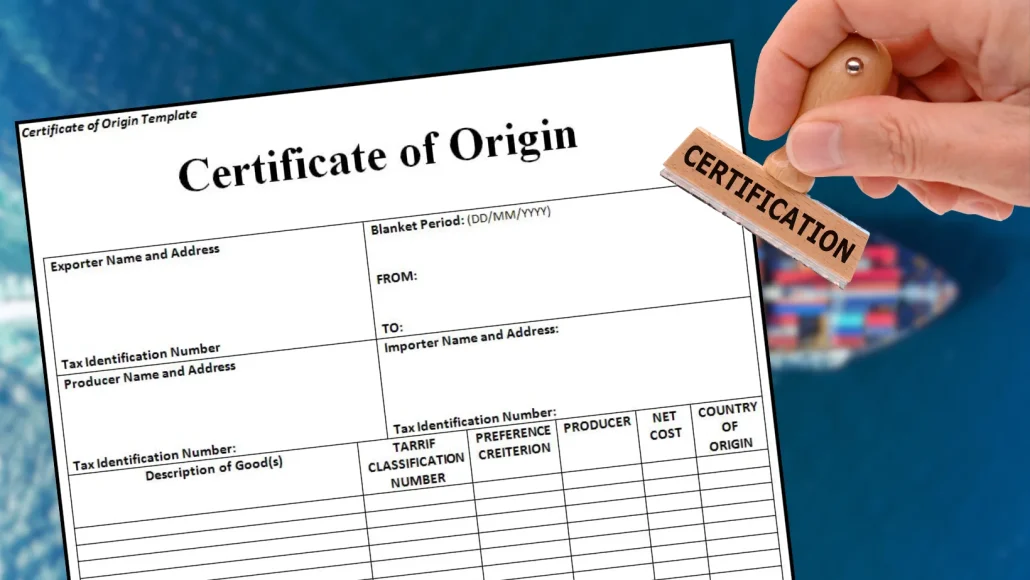- 021-91034194
- Info@pishco.ir
- Tehran, Sa'adat Abad
Home » What is a certificate of origin?
A Certificate of Origin (CO) is a document that provides information about the country of origin of a good involved in international trade. This document confirms the non-preferential origin of the good and specifies which country a product or its raw materials originate from.
this Certificate is required when the laws of the importing country require it or when the country of origin of the goods needs to be disclosed for economic, environmental or political reasons. Below, we will review everything you need to know about a this Certificate in the context of international transport.
A certificate of origin is an official customs document that certifies the country of origin of a product. It specifies the non-preferential origin of the product, meaning that the product is not eligible for any special treatment under specific trade agreements.
In most countries, chambers of commerce are responsible for issuing this document. Applicants usually need to have a business or residential address within the jurisdiction of the relevant chamber of commerce. The requirement to provide a this Certificate depends on the regulations of the destination country.
Important: Be sure to clarify with your trading partner that you are both referring to the same type of “certificate of origin.” There is a difference between a preferential this Certificate (which provides benefits under trade agreements) and a non-preferential this Certificate.

In the international shipping process, it is very important to understand the role and application of various documents. Below, the this Certificate is compared to other key shipping documents:
Recommended article: What is a Global Trade Item Identifier or GTIN code?
Clean energy or green energy refers to sources that leave little pollution and environmental impact in their production process. Examples of this type of energy include:
Each country may have different requirements for proof of origin, including:
Certificate of Origin applications are usually submitted to the local Chamber of Commerce, and in some countries it is also possible to file the application online.
The application process involves a set of documents, including the original this Certificate, the application form, and related copies. In this application, information such as the company name, recipient, country of origin, and product specifications must be provided.
Suggested article: What are Incoterms? What impact does it have on the global market?

Obtaining a this Certificate of Origin involves various costs that will vary depending on the country and issuing authority. Below is an overview of these costs:
The cost of this Certificate varies depending on the country and the local Chamber of Commerce. In general, these costs range from 30 to 150 euros. For accurate and up-to-date tariffs, it is recommended to contact your local Chamber of Commerce directly.
A certificate of origin plays an important role in customs procedures, helping to comply with import regulations and facilitate international trade. Although not required in all countries, it is essential for some regions, particularly the Middle East and Eastern Europe.
You may need to provide a Certificate of Origin due to the regulations of the importing country or customer requests. Some countries require this certificate only for certain categories of products, while others require it for all goods. It is important to issue a this Certificate in a timely manner, especially when the goods are ready for shipment.
To check if a specific country requires a certificate of origin, you can use resources like Access2Markets. By entering the country of origin and destination along with the HS code (customs tariff number), you can get the information you need about the required export documentation.
Also, it is always recommended to coordinate with your client to ensure the required documents are in place.
لطفا فرم زیر را به دقت پر کنید تا مشاورین ما در اسرع وقت با شما تماس حاصل فرمایند.
Please fill out the form below carefully so that our consultants will contact you as soon as possible.